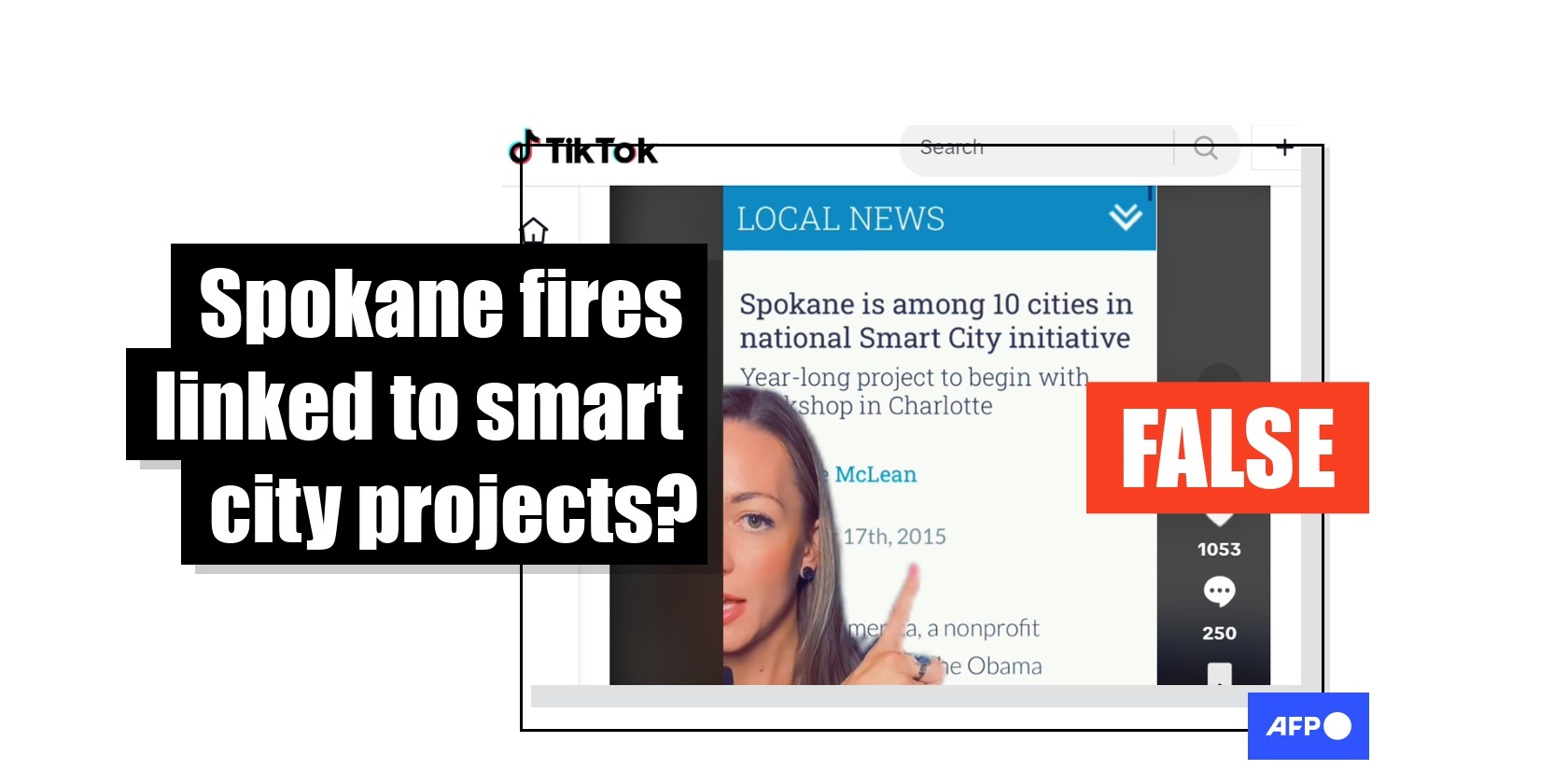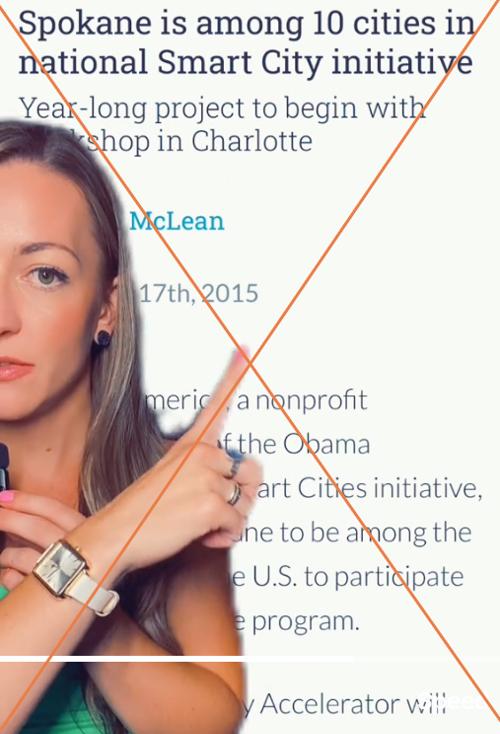
Washington state wildfires unrelated to old 'smart city' initiative
- This article is more than two years old.
- Published on September 11, 2023 at 21:27
- 3 min read
- By AFP USA
"Smart water, smart buildings, smart city," says Nicole West in an August 27, 2023 TikTok video with more than 18,000 views. "Spokane, Washington is one of 10 -- only 10 -- cities in the nation that is part of these beta tests for smart cities."
West, who describes herself on YouTube as an "independent researcher exposing the lies we're being sold by the establishment," cites screenshots of local projects to back her claim. She goes on to say the area "just had one of the largest fires, if not the largest fire, in Spokane's history."
"This is right after the Maui's fires," she says. "Is this something to be concerned about? What are the implications of being one of 10 cities in the entire nation that they want to use as beta test areas for this smart city idea?"

Other posts have floated similar theories about the fires that ravaged Washington state at the end of August 2023. Several thousand people were forced to flee the intense blazes, which killed at least two.
But claims of coordinated arson are baseless -- and the program cited in the posts has expired.
Smart cities "use information and communication technologies to improve the ways they operate," according to National Grid, an energy company in the United States and the United Kingdom. The urban planning concept has previously been the subject of misinformation following extreme weather events across North America, including August wildfires in the state of Hawaii.
The National Weather Service (NWS) warned of "critical fire conditions" for days leading up to Washington state blazes (archived here and here).
A spokesperson for the agency's Spokane office told AFP that while "numerous fires" ignited August 18, "two grew to be the largest and most impactful."
"They are both listed as 'human-caused' but all indications were that these were both accidental starts," the spokesperson said in a September 1 email.
Joe Smillie, a public information officer for the Washington State Department of Natural Resources, told AFP on September 8 that the rapid spread of these fires "was due to natural conditions."
"We had had weeks of unseasonably hot and dry weather and a front moved through that day that brought with it heavy winds that pushed the fire through the dry grasses and trees," he said.
Officials are still investigating the origins of the Gray and Oregon Road fires. Smillie said that while arson is behind a lot of fires in Washington, "it could just as easily (have) been accidental."
"In Washington, 90 percent of our wildfires are caused by humans, but that encompasses many causes," he said, pointing to campfires and discarded cigarettes as examples.
"Not all human-caused fires are criminal."
AFP contacted the Spokane County Sheriff's Office and the Spokane Fire Department for comment, but responses were not forthcoming.
Old project
West cites a December 2015 article from the Spokane Journal of Business (archived here) about the city's inclusion in the Obama administration’s Smart Cities Initiative, which allocated tens of millions of dollars to help communities digitize their infrastructure (archived here).
"The Obama White House wanted to launch a variety of smart city initiatives back in 2015," said Amy Aussieker, executive director of Envision Charlotte, a nonprofit that hosted a workshop that year with the Spokane Smart City Accelerator.
"We worked with them to create Envision America, where we would bring in companies in the smart city space to work with cities on their smart city initiative."
But Aussieker said the project has since ended -- and Envision America is no longer active. The last updates on the nonprofit's website are from 2017 (archived here).
"I don't know if Spokane has any smart city projects going on," Aussieker said August 31. "Most cities do have projects they would call smart city -- using data and technology to advance programs."
More recent smart city initiatives in Spokane include a $350 million river cleaning project and an energy efficiency program, both announced in February 2020 on the city's website (archived here).
AFP has fact-checked other false and misleading claims about smart cities here.
Copyright © AFP 2017-2026. Any commercial use of this content requires a subscription. Click here to find out more.
Is there content that you would like AFP to fact-check? Get in touch.
Contact us
